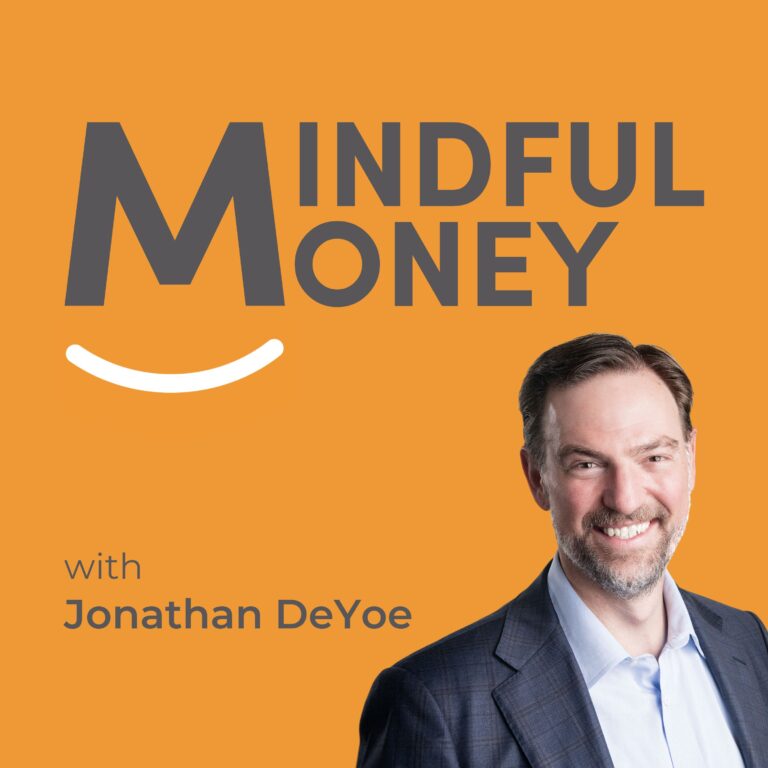When we are little, all of our worldly possessions fit inside a single box. As we grow up, we acquire more things… and need more boxes. As we complete our educations and launch into our careers, we begin a march towards ever-increasing financial complexity… and we continue to need more boxes.
At some point, you may wonder whether it may be time to hire a financial advisor. Then, in the very next moment, you may wonder if it’s worth the cost. If this is a question you have found yourself asking, then keep reading while we do our best to answer it.
Financial advisors do lots of different things. They may help you create a vision for your life and set goals that make sense. They can help you plan your spending and manage your debt. They might help you with health and long-term care planning. Most will help you with retirement income planning. Many will help you with an inheritance and tax planning. Some can help with your estate and philanthropic planning. A few will walk you through your employee benefits. Some will help you build and manage a portfolio (or portfolios) for you, and some don’t. There are lots of different kinds of financial advice out there.
Before you move forward, ask yourself:
Can I manage my personal finances on my own?
Do I want to manage them on my own?
Do I want to do it all, or just part of it myself?
If I need help, what specific help do I want?
Will I want someone to talk with when my investments are more volatile than I expected?
Do I want a person, or am I comfortable working with technology?
Once you’ve answered those questions, we hope this guide will help you decide exactly what kind of financial advice would work best for you.
“I think I’ll go it alone”
There’s nothing wrong with wanting to be your own financial advisor – it isn’t rocket science or brain surgery. Still, it is best to go into this with eyes open. It will generally require time and effort generally, and may require your attention at inconvenient times.
You can also opt for a “hybrid approach” combining some technology like a robo-advisor (explained below), and/or a digital planning tool, and then supplement it with an hourly-paid planner or live subscription Q&As with a professional.
Research
In order to make the right choices for your portfolio, you’ll have to do research. You will need to learn about different asset classes and their characteristics, and how they are combined within portfolio strategies.
Learning the differences between stocks, bonds, real estate, commodities, currencies, and other assets, and how they can help (or hinder) your efforts to reach your financial goals is an important part of building a diversified portfolio. In addition, you have to make choices about investment vehicles. It is possible to own individual securities such as stocks and bonds. And, smaller investors may be better off using mutual funds, ETFs (exchange-traded funds) and other vehicles that provide broader diversification with relatively smaller purchase amounts.
Good research requires a basic interest. If you aren’t naturally interested in the subject, it is unlikely you can succeed, mostly because you just won’t want to do it.
Risk assessment
Understanding risk and how it functions in long-term financial planning and in portfolio management is critical. If you do it yourself, then you must be able to evaluate different types of risk, including market and systemic risk, as well as the various planning risks. You must know how to manage, control for, or insure against the various risks.
Time to manage your money
It takes time to consider all your personal finance issues, and it also takes time to manage your cash and investment portfolio.
You will need to determine how much you need to save… and then make sure you save it. You will have to review your insurances. You will need to build your portfolio and know when and how to rebalance it. If you’re managing everything on your own, you will be prioritizing your goals, you will have to understand your trade-offs and define them in your plan. Then, you will be choosing your asset allocation, creating your diversification, and regularly rebalancing on your own.
When you are managing your own taxable accounts, you need to pay attention to the tax consequences of your decisions. You may want to learn about tax-loss harvesting which can be a good tool to reduce your taxes over time. Done properly, tax-loss harvesting can add 1% or more to your long-term performance. It matters.
Mindfulness
You need a certain degree of mindfulness when managing money on your own. Awareness of your own potential biases and blind spots can help you stay away from emotional decision making. Anyone can understand the principles in an academic sense, but getting the emotional distance needed to implement them can be difficult.
Robo-advisors
A “robo-advisor” is just what the name suggests: investment management that matches a pre-designed portfolio based on your scored answers to a risk tolerance and time horizon questionnaire with an algorithm. Given that there is no customization and no human interaction, most robo-advisors charge a lower annual management fee than a human advisor might charge.
Robo-advisor algorithms are based on Modern Portfolio Theory (MPT), a strategy that allocates between asset classes in your portfolio rather than considering individual securities. Most robo-advisors use various stock and bond exchange-traded funds (ETFs) to build a portfolio. Some robo-advisors also provide services like algorithmic rebalancing and tax-loss harvesting.
At Mindful Money, we have partnered with Betterment to offer our digital investing services. We start with a variety of financial education courses, and when it is time to start implimenting, we combine Mindful Money portfolios via Betterment’s technology platform with a subscription to Mindful Money Live – including access to live group Q&A and conversation with an advisor.
Human advisors
It’s true that many human advisors also use MPT as a starting point when giving advice, but “advice” can be tailored to your situation and it isn’t limited to portfolio design.
Morningstar research suggests that a human advisor can add “gamma” factors to retirement planning. By focusing on financial planning, withdrawal rate adjustments, tax efficiency, and annuity purchase decisions, a good financial advisor can help you generate an income level more than 20% higher in retirement.
Vanguard offers similarly dramatic results from hiring an advisor. Vanguard focuses on planning and behavioral psychology, rather than trying to beat the market. Advisors in Vanguard’s study were able to add 3% to average annual net returns for clients – though Vanguard cautions that these benefits concentrated in periods of heightened excitement and anxiety in markets.
Involving a human advisor is more expensive. And, depending on your life stage and the complexity of your personal finances, you may see real value working with a human advisor. Human financial advisors can help with different functions related to money management:
- Planning: A financial advisor should help you think through and prioritize different goals, determine a spending and savings plan, build an appropriate asset-allocation, and help you consider and manage risk.
- Behavioral coaching: Investing is emotional. A good financial advisor coaches you through investing with heightened emotions. Oftentimes it is a well-placed “don’t do that” from someone we trust that has the best chance of saving us from ourselves. Your advisor can maintain emotional detachment when you can’t.
- Portfolio management: In addition to planning and providing a roadmap, some advisors engage in portfolio management. They create appropriate asset allocations, select securities, manage contributions and withdrawals, and control rebalance frequencies.
- Wealth management: Some advisors help you manage all aspects of your wealth — not just your portfolio. Wealth managers provide you with continuous guidance, help you consider your legacy, and make all aspects of your financial world work together. As necessary, they may integrate other types of advisors – your tax professionals, estate planning attorneys, and business advisors.
How financial advisors are paid
If you decide to work with a financial advisor, you need to understand how they are paid. You want to make sure you’re getting good value for your money, whatever the level of service you need.
Fee-only vs. fee-based financial advisors
When evaluating financial advisors, it’s important to understand whether they’re “fee-only” or “fee-based.” Fee-only financial advisors are compensated strictly from the fees they charge you – they will not receive any compensation directly from product companies.
Typically, a planning-oriented, fee-only advisor will charge a flat fee for planning, and then receive ongoing compensation as a fee levied on the assets they are managing, perhaps 1% +/- a smidge.
If you work with a fee-based financial advisor, they might charge you a fee and receive compensation from others such as mutual fund companies, and/or insurance fees for products such as annuities. The important thing is transparency.
Here are some of the ways financial advisors are paid:
- Flat fee: Some advisors charge a flat fee for services such as creating a financial plan or a college plan. Some robo-advisor like Acorns, charge a flat monthly fee for services, not a fee based on assets.
- Assets under management: This fee is a percentage of the assets you have under management. According to RIA in a Box, the average cost for in-house management is 1.17%. With this methodology, your cost is annualized. However, there are differences. Some advisors levy their fees in advance and some in arrears. Many robo-advisors charge fees in this way – though they are typically lower, 0.25% – 0.5% annually.
- Commissions: In the traditional broker world, brokers were paid by commission, meaning either they made money for every trade – or the product manufacturers (ie. Mutual fund companies or insurance companies) would pay advisors to sell their products. In this scenario, it’s important to discern if they are recommending something because it’s the right product for you, or because they are being paid for selling it.
The most important factor in choosing an advisor is trustworthiness. If you find someone who has the credentials and experience you want, speaks in a language you understand, and who you trust, then that is probably the right advisor for you.
10 questions to ask an advisor before moving forward
If you decide to hire a financial advisor (a human), ask people you know for referrals. If possible, interview at least two advisors. As you do these interviews, you will become more familiar with this arena and more comfortable about making a decision. Don’t short the process. Here are 10 questions to ask:
1. Are you a fiduciary?
This is the most important first question. One way to reduce the chance that you’ll end up with a financial advisor who has too many conflicts of interest is to look for a fiduciary. A fiduciary is someone who is required to put your interests above their own.
2. What are your credentials?
Find out if your financial advisor holds any specific credentials. Is the firm they work for a Registered Investment Advisor (RIA)? You can also ask about designations like:
- Certified Financial Planner (CFP)
- Chartered Financial Analyst (CFA)
- Chartered Financial Consultant (ChFC)
- Chartered Private Wealth Advisor (CPWA)
- Certified Investment Management Analyst (CIMA)
- Accredited Investment Fiduciary (AIF)
These are designations that come with different education and experience requirements. Additionally, these designations are awarded by third-party organizations that also require ethical behavior. Find out what credentials your potential advisor has and then double-check to ensure their designation is up-to-date.
3. What type of experience do you have?
In addition to knowing how long an advisor has been working with individual and family-group clients, you also want to know what type of expertise they have. Do they have specialized knowledge, for example, about small business planning or estate planning or insurance, etc. The essential question: do they have experience working with people like me?
4. Do you have disciplinary actions on your record?
If you can, find out about disciplinary actions, if any. Many firms might have some items to disclose, particularly with regard to client suits for damages. Some can be serious enough to require another choice, but some may not be. Here is a paragraph from the SEC’s website:
An easy way to check out an investment professional is to use the free search tool available on Investor.gov, which will direct you to the SEC’s Investment Adviser Public Disclosure website (IAPD website). You can also visit the IAPD website directly, FINRA’s BrokerCheck program, and/or your state securities regulator.
5. How are you paid?
Find out what fees are charged, as well as if there are commissions involved. While a fee-based financial advisor can be a good choice, if you’re just starting out, you might feel more comfortable with an advisor whose ONLY compensation comes from you, the client. This is a fee-only advisor.
6. How do you report investment performance?
A lot of financial advisors will tout their track record. Determine if the numbers they are reporting are the result of audit. Performance claims should be met with a great deal of skepticism. Inquire to find out if their performance reports are gross or net of fees. Net of fees is more pertinent to your likely outcome.
7. What does my fee include?
Find out how your fees are charged, when and what you can expect. (see discussions above about fees, how they are arrived at and charged). In addition, what other services are provided within the fee – e.g., updates to plans, family financial education services, one-to-one meetings, events if any and what type – and what will require extra charges.
8. What’s your investing philosophy?
Ask how they make investment decisions. Do they take a growth, or a value approach, or a core approach? Do they rebalance, and when? What types of investments do they use? Are they all U.S. or do they invest internationally? If so, where? Do they “market time?” Do they hold cash, or are their portfolios all invested? Stay away from market timers, or anyone that tells you they can predict future relative performance of different investments.
9. Where do you keep my assets?
Find out where your assets are housed (“custodied”, as they say in the trade.). Most financial advisors use third party custodians such as Schwab, Fidelity, or Pershing. The custodians issue your statements and are responsible for your assets. Also, you should be able to view your accounts and monitor their performance.
10. How often will we meet?
Find out how often you’ll meet, whether there’s an annual review, when they suggest you make changes to your plan, whether you will have access between meetings, and what sort of educational opportunities your advisor might provide.
Bottom Line
There’s a lot that goes into creating and managing a long-term financial and investment plan. You can do it yourself, or get the help of advisors. It doesn’t matter which direction you choose to go, it is the consistency of process and continuous mindfulness of your plan that will ultimately get you there.
There will come a time (probably many times) when your plan will be tested… where it will appear to not be working anymore, and where the world will be screaming at you that your process isn’t working and “must be changed immediately or you will surely fall behind and never reach your stated goals.” In the vast majority of cases, you will need to stand fast on your plan and keep faith in you process.
At Mindful Money, we offer three different ways for you to engage us:
- Educational courses that provide a solid foundation and methodology for a do-it-yourself approach to financial planning and financial literacy.
- Digital planning and portfolio tools that provide you with a method to fashion your own strategy. Our digital tools are reinforced with subscription access to human advisors through live group Q&A.
- Comprehensive wealth management including financial planning and portfolio management. This is our premium service in which we provide seamless, pro-active support for our clients. Your family will have an advisor and a financial planner to support you through every financial decision, for as long as you are working with our team.
In sum, figure out what works best for you, and use that to guide your decisions. If you want to hear any more about any of the above three, let us know. We will happily send you a link or schedule a brief conversation.





